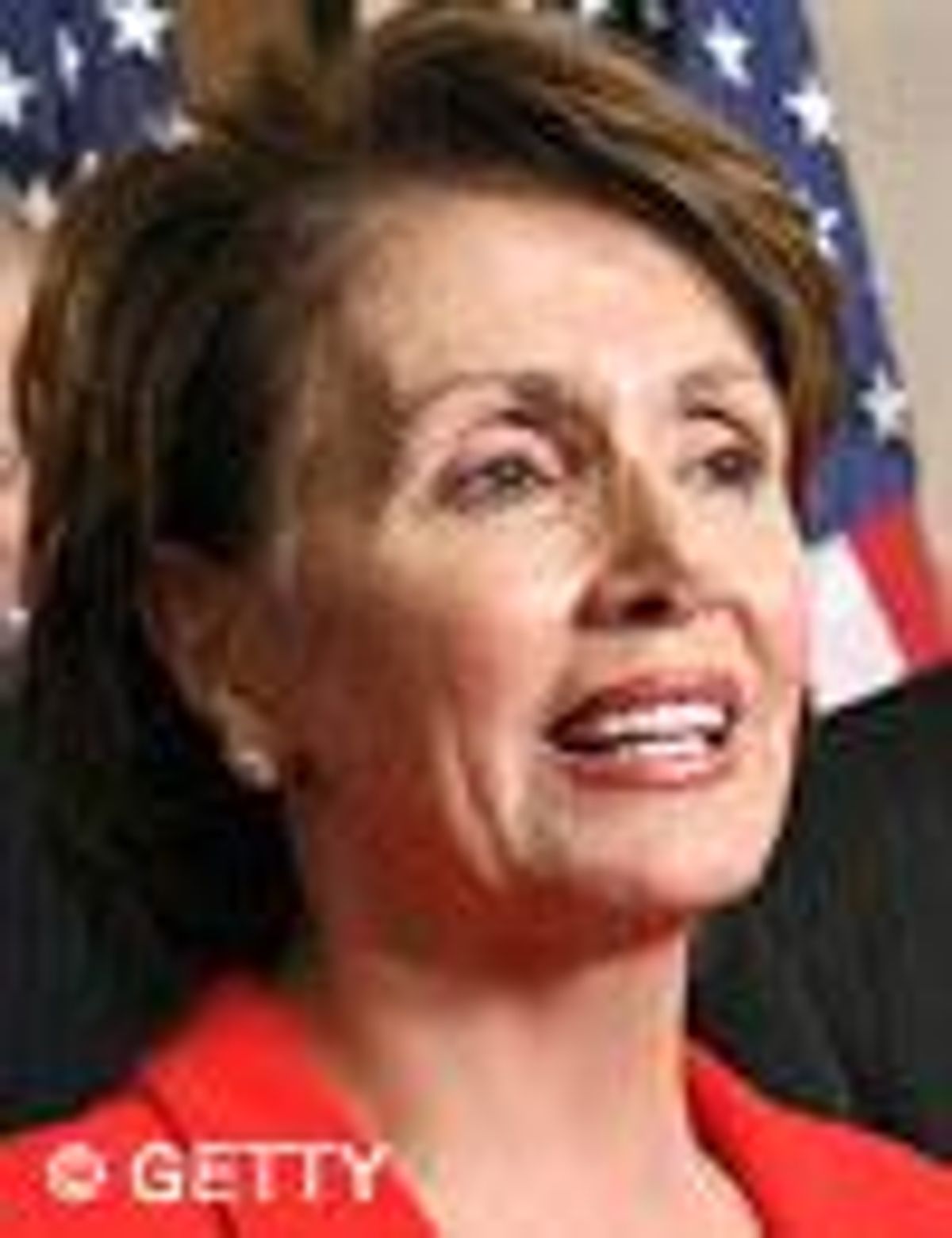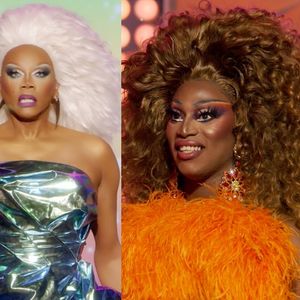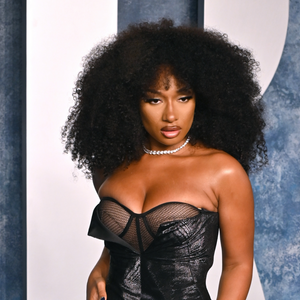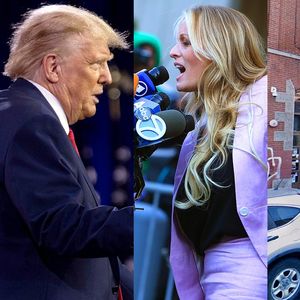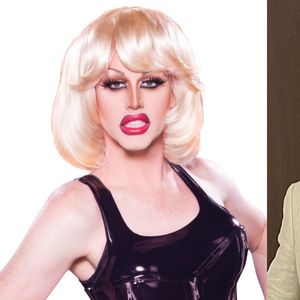When Nancy Pelosi
first arrived in Washington, D.C., as a newly elected
congresswoman in 1987, her fellow Democratic lawmakers
warned her about identifying as a San Francisco
liberal. After all, she represents California's
eighth congressional district, which includes almost all of
the city of San Francisco--including the predominantly
gay Castro district--and some worried she might
be perceived as too liberal to be taken seriously.
"On my
first day my colleagues told me not to speak. You
don't speak on the first day; you just get
sworn in and that's it," she recalls in an
e-mail interview with The Advocate. "So I tried to do
that, but when the speaker [of the U.S. House of
Representatives] said, 'Would the gentle lady
like to say anything?' I said 'Yes, I am here
to fight AIDS.' People asked me 'Why
would you say that? You don't need to be labeled that
way.' I responded, 'Well, that's
why I came here.' "
Now Pelosi, 66,
is the speaker of the House, and everyone is asking: Will
she continue to be that headstrong San Francisco liberal,
standing up for gays and lesbians? In a recent
Saturday Night Live skit, an actress portraying Pelosi
rebuts GOP warnings that Democrats would bring "San
Francisco values" to the country. Then, midway
through the sketch, a gay staffer appears, clad in
leather bondage gear.
Pelosi's
connections to her LGBT constituency may be fodder for
late-night comedy and grist for the conservative smear
machine, but those ties are also long-standing and
deep. And her ascension to the highest leadership
office in Congress would seem to bode well for gays and
lesbians. "This is an historic moment for this
community," says David Mixner, a gay writer,
activist, and longtime Pelosi friend. "I don't
think we've ever had someone at that level of
leadership who has her record on our issues."
For the next two
years and possibly beyond, the person who sets the
agenda in Congress and wields the greatest influence on the
ruling party is a woman who has opposed a
constitutional ban on same-sex marriage and advocated
for increased AIDS funding. Those issues have personal
meaning for Pelosi: She has attended the commitment
ceremonies of her gay friends and watched others die
of the disease.
Indeed,
Pelosi's close circle of gay friends, including James
Hormel, the former ambassador to Luxembourg, and his
partner, Timothy Wu, has shaped her
worldview--and her politics. She has attended numerous
gay events and has hired many gay staffers in
Washington and in her district offices.
" 'Organic' is a good way to
describe it," says Mark Leno, a gay California
assemblyman, of Pelosi's championing of gay rights.
Leno, who represents San Francisco and who has known
Pelosi for more than 20 years, says the speaker-elect
is "very much a part of this community and of the
progressive community, so it only comes naturally."
Although she is
considered one of our strongest allies in Congress,
Pelosi is first and foremost a political animal. She grew up
in Baltimore before studying at Trinity College in
D.C. She was raised on old-school party politics under
the tutelage of her father, Baltimore mayor and
Democratic boss Thomas D'Alesandro Jr. She played a
backstage role in California politics for years before
running for office. In 2002 she won a tough intraparty
race to lead House Democrats, and she has since
performed a delicate balancing act to appease her fractious
caucus.
Besides gays,
Pelosi counts among her national constituents labor unions,
trial lawyers, African-American voters, and
Hispanics--all of whom she must continue to
court. And as the new public face of the Democratic
Party, she isn't likely to put the gay rights agenda
at the top of her to-do list, says Hastings Wyman,
founding editor of the Southern Political Report, who
frequently writes about gay issues.
Wyman and others
agree that Pelosi learned a lesson from President Bill
Clinton, who challenged the military's ban on gays
immediately after taking office. After running with a
centrist message, the sudden leftward lurch mired his
nascent presidency in controversy. "I don't
think the Democratic powers that be want to end up
like Clinton," Wyman says. "He ended up
giving away the store and not being able to get much
done."
But Pelosi says
she is willing to take up gay rights issues--as long
as the political climate is right. "There are
quite a few issues that are significant to the gay
community that I believe present opportunities for
consensus among House Democrats and can attract moderate
Republican support," Pelosi says.
"Legislation like the Employment
Non-Discrimination Act and a federal hate-crimes bill have
earned this type of wide-ranging support."
Though
conservatives love to paint her as a dangerous lefty, Pelosi
has long taken knocks from some gay and progressive
activists--particularly in San
Francisco--who say she's too moderate, notes
Richard DeLeon, professor emeritus in the political
science department at San Francisco State University.
Now that she's the party's most visible
member, that rift will only deepen. "There will
always be people who say she's not doing enough
for them," DeLeon says.
Hill watchers
predict Pelosi and House Democrats will make small strides
on gay issues, even if they have to wait behind other
Democratic priorities, like raising the minimum wage
and changing course in Iraq. "I could also see
revisiting the 'don't ask, don't
tell' policy," Wyman says. "You
could tie that to needing more people in the military,
making it a national security issue" and
therefore more palatable to a national constituency.
Though even the
most ambitious of gay advocates privately admit that they
are not looking to the Pelosi Congress for major--or
swift--legislative victories, they say the gay
rights movement will gain strength during her tenure.
For one, proponents of gay rights will be able to ease up on
their defensive game. "A Democratic majority will not
condone mean-spirited measures that target the rights
of LGBT individuals," Pelosi assures us.
And that will
allow gay rights groups to better fund and organize
themselves, says Mixner. "I don't think
we're fully aware of how much of our energy,
time, and resources we spend defending ourselves against bad
legislation and amendments instead of being
proactive," Mixner says. "That will
change dramatically, and that is not a small thing."
And with Pelosi
and her Democratic colleagues replacing a Republican
leadership that routinely advanced policies that alarmed
gays, the change in the cast of characters itself is
cause for relief among activists. "What we get
out of this is a champion on our issues, someone who speaks
up for our health and our dignity and our first-class
citizenship," Leno says. "That has
symbolic benefits as well as legislative ones."
